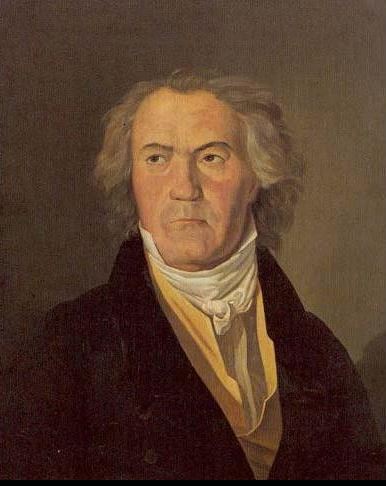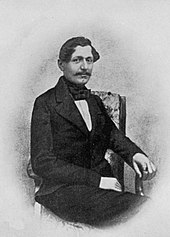"Music, Sense and Nonsense: Collected Essays and Lectures", por Alfred Brendel.
Capítulo: “Performances, programmes, recording - Audacious Chamber Music II: Beethoven’s ‘Grosse Fuge’ ant the Quartet Op. 130”
https://open.spotify.com/playlist/3M9quxPGJ3CLlXWzfG7Gld?si=31P0SAEDSDW0TCU1BjM6kg
#MusicSenseAndNonSense #SundayBlues
Capítulo: “Performances, programmes, recording - Audacious Chamber Music II: Beethoven’s ‘Grosse Fuge’ ant the Quartet Op. 130”
https://open.spotify.com/playlist/3M9quxPGJ3CLlXWzfG7Gld?si=31P0SAEDSDW0TCU1BjM6kg
#MusicSenseAndNonSense #SundayBlues
Beethoven compuso sus últimos cuartetos en un periodo de dos años y medio, aproximadamente en el mismo tiempo que Schubert escribió sus tres últimos. Se dice que antes de morir, Schubert pidió escuchar el Cuarteto Op. 131 de Beethoven. https://open.spotify.com/track/2QWPLuF9SUvaI2smUjkop3?si=a4Ez2H4cRvS-02VbVOuCvQ
En una antigua edición de los últimos cuartetos de Beethoven aparece esto: “This music is so completely dissociated from all that is material, so thoroughly the expression of a spirit governing being all earthly matters that it well nigh reaches the borders of music itself”.
Para Brendel, en el estilo tardío de Beethoven hay una expansión y síntesis de los recursos musicales. Los elementos contrastantes chocan y se fusionan. Encontramos también un canto instrumental, con cánones, corales y recitativos, modos eclesiásticos, fugas, fugatos y polifonía.
“The advent of Beethoven’s late style in his Piano-Cello Sonatas Op. 102 strikes us notwithstanding all premonitions in Fantasy Sonatas Op. 27, in the F minor Quartet, or the song cycle ‘An die ferne Geliebte’, with an almost shocking force”. https://open.spotify.com/track/0EKPj41uhOc0r0UjkKbjsm?si=nnWPzTzSR52wd_MjOpOeLw
Grandes obras como la Novena Sinfonía, la Missa Solemnis, las últimas 5 sonatas y las Variaciones Diabelli, preceden los cuartetos finales. También están las Seis Bagatelles Op. 126 que Beethoven llamaba “Ciklus” que recuerdan el arreglo cíclico de seis movimientos del Op. 130.
De la “Grosse Fuge” Brendel escribe: “The staggering boldness of this work has hardly ever been surpassed; for a century, it was held in disfavour (…) It needed twentieth-century ears and minds to bring about an understanding of this work…
…For Stravinsky, it was ‘the most perfect miracle of music’”. Beethoven añadió las palabras “tantôt libre, tantôt recherché” al título de la primera edición. https://open.spotify.com/track/4AddUJJPaN2ozCr6nWpAy0?si=xhWFADh-R7ud80Wc5kfsDg
Originalmente fue escrita como último movimiento para el Cuarteto Op. 130. Para Brendel, “one can see the fugue as a monumental and oversized event that has merited a separate place or rather something that was missing in the other movements of Op. 130, and finally provided”.
Cuando Beethoven escribió la “Grosse Fuge” en 1826, se encontraba bajo una gran angustia emocional. Su sobrino Karl, al cual estaba desesperadamente apegado, había intentado suicidarse y su propia salud se había quebrantado.
Para Brendel, los últimos cuartetos de Beethoven invariablemente nos llevan a un viaje de descubrimiento, a diferencia de George Bernard Shaw, para quien estas obras eran "simples, sin pretensiones y muy accesibles".
George Bernard Shaw también dijo que la Sinfonía No. 9 de Schubert era “one of the most provocatively brainless compositions ever penned on paper.” Dudo que la haya realmente escuchado. https://open.spotify.com/track/6LznFEQdFVSau6Z5zcCJNN?si=wcGDsn2GR2-I0cXXuMMFCA
Mientras que los otros cuatro cuartetos transmiten un fuerte sentimiento de coherencia, el Op. 130 está más libremente trazado. “It recalls Beethoven’s ‘Sonata quasi una fantasia’ Op. 27 No. 1 where the succession of the movement is surprising and almost dreamlike”.
El primer movimiento es un Allegro con un Adagio como introducción, el segundo es un Presto, corto, atrevido y burlesco. El tercer movimiento mantiene a los intérpretes en un precario balance entre lo lírico y lo cómico. https://open.spotify.com/track/7kGySz0ozSK2tgxDyCed0Z?si=GTyc7eDjTm-5ESiow2EdfA
Para Brendel, el cuarto movimiento, “Alla danza tedesca”, es de esas piezas que refinan el carácter rural sin perderlo. El quinto movimiento, la “Cavatina”, es el corazón de la obra. Para Beethoven era, entre sus composiciones, la que más le conmovía. https://open.spotify.com/track/2VaMpIScERLsG1a8OKku0K?si=528uJ_wJTCWjmXuaXerHMQ
"For the end, the performers are allowed to choose between the light-minded finale and the elemental event of ‘Grosse Fuge’ - the ‘very great fugue’, as Stravinsky called it. What an odd constellation to be confronted with such a choice!” https://open.spotify.com/track/5BrEOa8NJvkMXU8Lhi2Ds2?si=2097Z3dyRMiGXi_mAE5YIg
Respecto de esta posibilidad de elecciones, Brendel concluye el capítulo afirmando: “To anyone who seeks to establish every single not that Beethoven wrote as being ‘organic’, here is a good opportunity to think again”. Buenas noches.
@threadreaderapp unroll

 Read on Twitter
Read on Twitter









